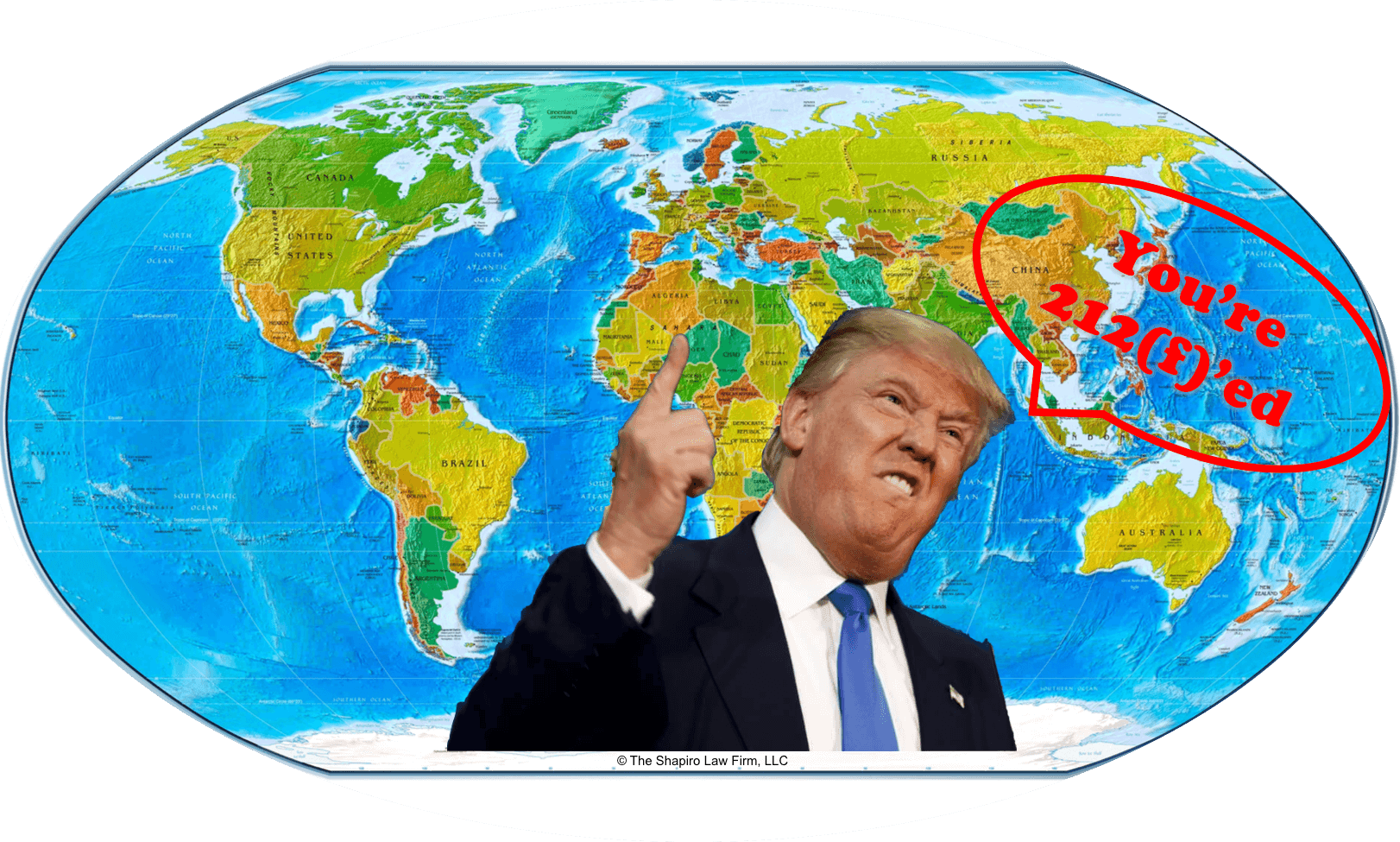Who Did President Trump 212(f) Today? | UPDATE: New Travel Ban Executive Order Signed - What you need to know

What you need to know about the new "Travel Ban" Executive Order (EO)
Yesterday, President Trump signed the long awaited revision of his executive order titled, "Protecting the Nation From Foreign Terrorist Entry Into The United States," or as it is more commonly known, the "travel ban." President Trump has marketed this EO as the answer to the federal courts who suspended the travel ban over a variety of concerns, most notably due to concerns over the constitutionality of the EO as it relates to due process and freedom of religion. So what changes have been made and is this new EO now constitutional? I break down the new EO for you.
What is new?
Provides some justification for putting a country on the 212(f) list. The EO now provides a brief explanation as to why each country has been placed on the travel ban list, generally citing that each country is either a "state sponsor of terrorism, has been significantly compromised by terrorist organizations or contains active combat zones." The EO reasons that these conditions create an "unacceptably high" risk that the U.S. may permit entry to a foreign national from one of these countries who may intend to commit terrorist attacks inside the U.S. or otherwise harm the national security of the U.S.
The 7 country ban is now a 6 country ban. Iraq has been removed from the 212(f) list. The EO states that "Iraq presents a special case," and goes on to justify the removal of Iraq from the list of banned countries by stating that since the first EO was signed on Jan 25, the Iraqi government has taken steps to "enhance travel documentation, information sharing, and the return of Iraqi nationals subject to final orders of removal." The EO further states that Iraqi nationals will still be subject to additional scrutiny to ensure that they are not connected to terrorists.
Outlines who the EO applies to and does not immediately take effect. In an attempt to avoid the chaos and confusion accompanying the first EO, this EO states who the travel ban actually effects. This EO does not apply to nationals of these 6 countries who have/are a:
-
Valid visa issued on or before March 6, 2017;
-
Lawful Permanent Resident;
-
Valid travel document (such as advance parole) permitting entry into the U.S.;
-
Valid Diplomat Visa;
-
Previously-admitted refugee or asylee;
-
Dual national of 1 of the 6 countries and are traveling with a passport issued by a non-designated country, and;
-
A valid nonimmigrant or immigrant visa issued before the date of this order.
Removes preference to refugee-seekers of "minority religions." There is no mention of any preference that will be given to refugee-seekers on any basis.
Syrian Refugees no longer face indefinite ban. Syrian national refugees now face the same 120-day ban on refugee admission as the rest of the world.
Is the travel ban now Constitutional?
The tailored version of President Trump's travel ban does appear, on its' face, to have a better chance at surviving legal challenge. This is due to the fact that the preference for minority-religion asylum seekers is removed and by providing some rationale behind why countries have been placed on this list to begin with. These changes certainly give the White House a leg to stand on in response to legal challenges. But it is important to keep in mind that ultimately this EO looks a lot like the first one, and the President has made it clear that the changes are in response to the federal courts' concerns. There is thus still a plausible argument that the same intent is behind this EO, which is simply tweaked to appease the courts. Regardless of what the EO says on its' face, if the courts find that the intent to discriminate on the basis of religion still exists, the EO will not survive a court challenge.
There is a good chance we will hear from the courts soon on this issue, as many immigrant rights groups have already expressed dismay over the new EO and have vowed to undertake swift legal actions against.
Note: “Attorney Advertising” The information contained in this web site is intended to convey general information. It should not be construed as legal advice or opinion. It is not an offer to represent you, nor is it intended to create an attorney-client relationship. Any email sent via the Internet using email addresses listed in this web site would not be confidential and would not create an attorney-client relationship.




